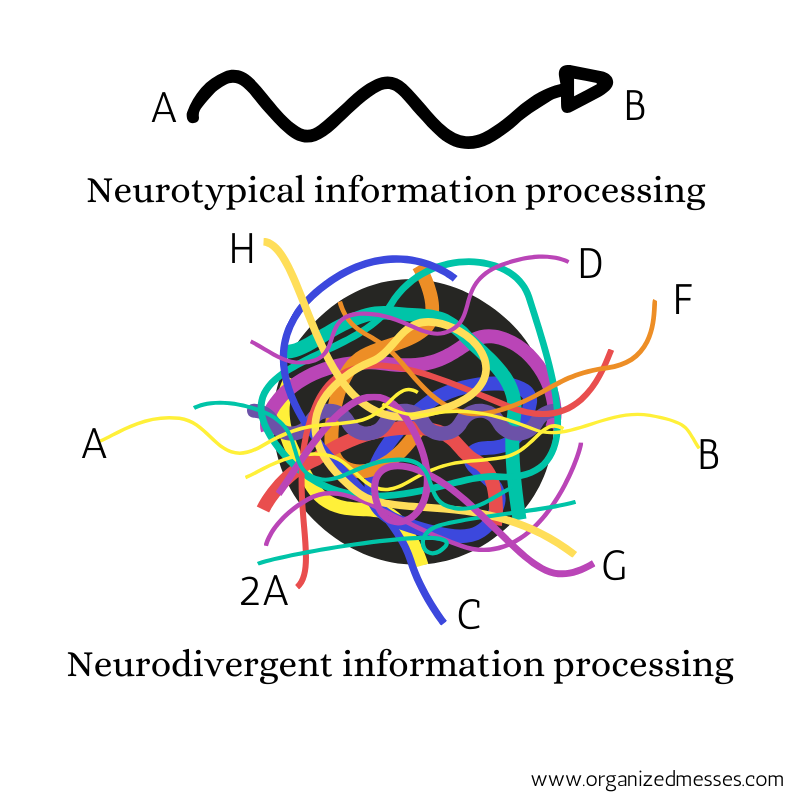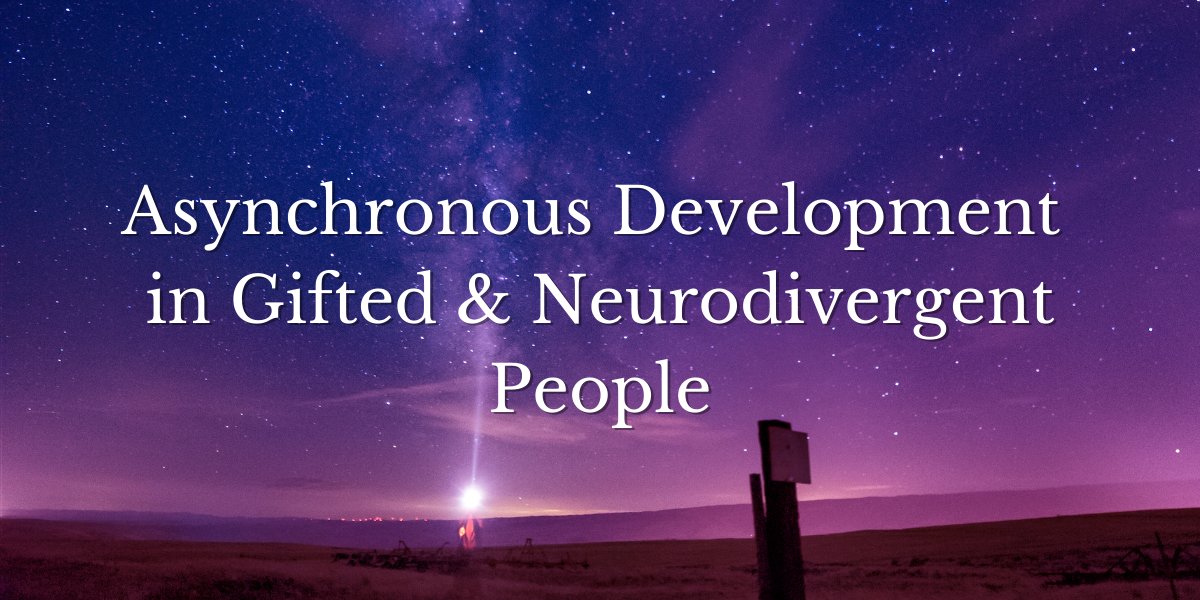Common Phrases an ADHDer & Others May Hear:
“You’re Not Even Trying.”
“Why are you repeating the question? I just said it.”
“Stop doing that (stim or focus activity) and look at your homework.”
“We’ve done this a million times. Why don’t you get it yet?”
This is a common scenario that can be uttered during the homework battles of being a neurodivergent learner. If you’re an adult, you may remember hearing similar statements or having the feelings of frustration fill the room and overwhelm your body. What happens when this exchange and series of messages accumulate over time?
You may internalize certain labels or themes that resonate with being lazy, less than, and uncertain.
When important people tell us again and again that something is wrong with us, we may start to believe it.
It can feel overwhelming and difficult to try again, ask for help, or even want to explain how you think or interpret a homework question. “This person already made judgments against me, why should I even try?” For a young and sensitive person seeking authentic experiences and connections, having this realization can be an obstacle to learning. There is a potential power differential in the room, too. Adults, teachers, and other professionals have a weighted responsibility to see how their implicit and explicit behaviors affect the development of a learner.
This can lead to a cycle that repeats and further reinforces certain traits as a self-concept. Some of these traits neurodivergent learners may internalize could be: “I’m lazy, unteachable, slow, annoying, and unworthy of attention unless I’m perfect.”
So, what do we do?
The Actual Problem(s)
For a neurodivergent learner, there is an atypical pattern of consuming information and experiences in a NONLINEAR way. Being neurodivergent many times comes with learning differences and “inefficient” ways of taking in information.
Is this wrong? Heck no. It’s a different pattern of gathering information, processing it, and making connections to learn. The confusing and frustrating part is that our world and education system are set up for LINEAR everything.
While neurodivergent people are attempting to learn and rest certain parts of their brain and body by going to different types of stimulation sources, the neurotypical world is trying to redirect them again and again to “FOCUS” on the task at hand.
Well, the neurodivergent brain is TRYING to. It’s like when you exercise and certain body parts are tired. It’s time to let those muscles rest and focus on another muscle group or stop exercising. That’s it. That’s the difference.
The neurodivergent brain needs more rest to make more connections because the information is touching many parts of the brain at the same time. It can be exhausting, AND show no “outcomes” because the information is still filling up different “buckets” of themes in the brain. This is where executive functions coaching is important, and learning how to better understand one’s learning processes can help. We neurodivergent people may have to learn and practice exponentially more than neurotypical people.
Certain concepts and life skills must be taught step by step with reasons of importance.
Ross Greene writes on identifying problems and obstacles to growth and success in The Explosive Child. It’s an amazing read and highly recommended.
Lagging Skills & Unsolved Problems
Instead of thinking our ADHDers (and others) are attention-seeking, defiant, or lazy, we can learn to reframe this situation as a space where certain skills or obstacles are stopping the learning process. This requires having perspective and compassion outside of oneself. Not everyone thinks like you. Not everyone can easily do the same things you can. AND it can be frustrating to see a loved one struggle because you want them to succeed and grow so much. A question to ask is:
“What are obstacles stopping this learner from learning or doing what was asked?”
Possible lagging skills to look out for:
Difficulty with Transition from one task to another
Difficulty maintaining focus (identify which tasks)
Difficulty problem solving during (specific subject, assignment, task)
Difficulty communicating needs (identify which needs)
Difficulty managing emotions shuts down when (activity), identify which emotions
Difficulty applying information unless paired with real-world reasons (aka the WHY?)
Unsolved Problems:
Poor fine motor control or pain when writing
Cannot hear or process information with noises in the background
Don’t know how to communicate misunderstandings (with certain people, multiple-step directions, vocabulary of certain topics unknown, etc.)
Cannot self regulate during (task or specific time)
Difficulty transitioning to homework after school on Mondays
Externalize the Problems
When we are able to take a step back and observe situations individually, there is an ability to separate a person from the problems. This is HUGE. It helps reduce shame and feeling defensive. Work towards change can begin when talking about problems instead of people.
Gathering Information
Before solutions can be identified and tried, it’s important to take some time to gather enough information to see when our learners are having difficulties. When we observe without judgment, information can be objectively identified to highlight things we might have overlooked when we are overwhelmed about fixing everything.
Asking Yourself: Is the problem I see the actual problem?
After practicing observing without judgement, and identifying lagging skills and unsolved problems neurodivergent people in our lives have, a wider perspective can be developed. I found it common to see the pain parents and others experienced when their neurodivergent loved ones struggled. It makes sense. We want our loved ones to succeed, and we want them to meet their potential. When someone struggles with something you can easily do, or have tried so hard to support, it can feel demoralizing. Feeling pain when someone else struggles means you have compassion. That is a wonderful human trait.
Again, as the practice of looking for lagging skills and unsolved problems becomes a more common lens of the world, there is also a realization that each person has a different set of skills, gifts, personalities, and goals for this life. We can be honest about the expectations we have for each person in our lives as well as respect how someone may pursue their life path. A stronger bond of understanding and compassionate support can be developed. That can be liberating for everyone involved.
Further topics related to lagging skills and unsolved problems include: coregulation and executive function skills. I plan to write more on these subjects later. Please check back!



















